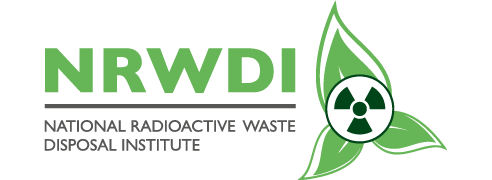A better understanding of how international cooperation could enhance the management of spent nuclear fuel and high level radioactive waste — the back end of the nuclear fuel cycle — was the focus of a forum held at the IAEA last week. About 50 participants from 25 Member States analysed drivers for cooperation, identified impediments and discussed approaches to overcome them.
“Innovations in the back end of the nuclear fuel cycle can significantly contribute to the growth of nuclear power,” said Mikhail Chudakov, IAEA Deputy Director General and Head of the Department of Nuclear Energy.
“Using innovative fuels and fuel cycles can help nuclear energy systems become more sustainable,” said Chudakov, who is also the Project Manager for the International Project on Innovative Nuclear Reactors and Fuel Cycles (INPRO). “This is important both for technical reasons and for enhancing public acceptance.
More than 50 countries have spent nuclear fuel stored in temporary sites awaiting reprocessing or disposal, with 80% of the world inventory of spent nuclear fuel stored in the United States and in Western Europe.
A few countries have made good progress towards nearer term implementation of deep geological disposal of spent nuclear fuel and high level waste, in particular Finland, France and Sweden. Several other countries have longer term plans. But not all countries have appropriate geology to dispose of spent fuel and high level waste deep underground, so international cooperation is key. In addition, for many countries with small nuclear power programmes, the costs of such facilities can be prohibitive. Moreover, current national experiences indicate that the time frame from conduct of necessary research and development to commissioning a geological repository is roughly 30 to 40 years.
Many participants of the 10th INPRO Dialogue Forum agreed that enhanced international cooperation on the back end of the nuclear fuel cycle could bring considerable advantages in terms of safety, security, non-proliferation, environmental protection and economics – all key elements to achieving globally sustainable development of nuclear energy.
Drivers for cooperation

Multinational and multilateral cooperation on the back end of the fuel cycle could mobilize more resources and reduce the time and costs involved in developing fuel cycle infrastructure, including geologic repositories, participants agreed.
In a broad multilateral approach, newcomer countries could receive necessary assistance including information, knowledge, financing, human resource development, nuclear infrastructure development, and a feasible technical solution for managing and disposing of spent fuel and high level waste.
Challenges ahead
The Forum also discussed legal, institutional and financial impediments to cooperative approaches in the back end of the nuclear fuel cycle. Diverse legal and regulatory requirements exist in different countries, the legal status of spent fuel differs, some countries considering it a waste while others a fuel resource. Some countries lack the necessary institutional infrastructure and many face political and public opposition to permanent disposal of nuclear waste generated in other countries.
To address these, participants proposed cooperation in various areas, including increased government support, human resources development, capacity building in necessary research and development, and technology transfer.
Some participants proposed that nuclear technology vendor countries should make greater efforts to develop credible, safe, secure and sustainable back end service offerings up to and including disposal of spent fuel and high level waste – so that complete cradle-to-grave fuel cycle services are realized more broadly.
The INPRO Dialogue Forum on Cooperative Approaches to the Back End of the Nuclear Fuel Cycle: Drivers and Legal, Institutional and Financial Impediments was held at the IAEA from 26 to 29 May 2015. This was the tenth in a series of Dialogue Forums organized by the IAEA since 2010. INPRO Dialogue Forums are an opportunity for technology holders, users and other stakeholders to share information, perspectives and knowledge on issues relevant to global nuclear energy sustainability, long term nuclear energy strategies and the role of nuclear technology innovations.
